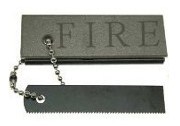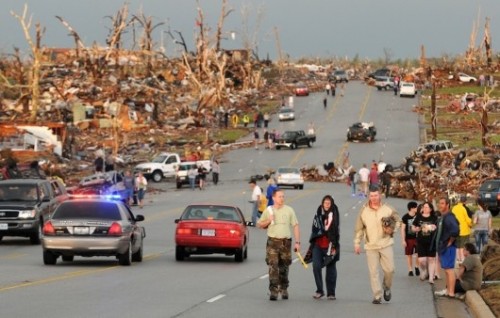 In the aftermath of a disaster, it’s only natural that we all want to lend a hand. However, it’s not always easy to know how to accomplish this goal. With a few simple tips in mind, everyone can discover how they can assist the victims of any type of catastrophe.
In the aftermath of a disaster, it’s only natural that we all want to lend a hand. However, it’s not always easy to know how to accomplish this goal. With a few simple tips in mind, everyone can discover how they can assist the victims of any type of catastrophe.
1. Give money. This can be the simplest and most effective way to assist in the aftermath of disaster. However, always donate with care. It is a disheartening fact that many fraudulent “charities” spring up after disasters. Donate only to charities you know and trust. You’ll rest easier knowing your money is going where it is needed most.
2. Donate items. After a disaster, the victims need many basic necessities. Food, water, laundry detergent, toothbrushes and other everyday items are in short supply. Although it's easy to imagine what might be needed, resist the temptation to ship anything that is unsolicited. Instead, do some research about what is required by the victims. Many relief efforts are hindered by the constant arrival of unnecessary donations. Find out which organizations are helping out in the disaster area. Visit their websites or call their head offices to find out what’s really needed before shipping anything.
3. Become a trained volunteer. Many disaster relief organizations offer volunteer training programs throughout the year. Get involved proactively by attending a seminar before disaster strikes. That way, when something terrible happens, you're ready to hit the ground running with aid that is truly effective.
4. Start a fundraising campaign. It's amazing how quickly small donations add up. Organize friends, family and coworkers to raise money. Put on a talent show, have a car wash or a bake sale. Don’t worry if the event takes weeks to organize. When disaster strikes, it can take months or even years for the victims to recover.
5. Find out what kinds of services victims of the disaster require and work to bring those services to them. This can be especially helpful if you are part of a professional organization or an industry that could provide expert assistance. For instance, architects and surveyors will find that their services are in demand after an earthquake. Perhaps a pilot could donate his time to fly supplies into a disaster area. Work to organize your coworkers and professional contacts to offer up their time and experience.
6. Assess your personal strengths and look for ways to apply them to the situation. In the wake of a disaster, it’s important to rely upon your strengths. Some people can’t stand the sight of blood, but have excellent organizational and administrative skills. If that sounds like you, then you’d be surprised at the many ways your flair for organization and computers can make life easier for disaster victims.
7. Special attention for young victims. Catastrophes can be particularly traumatic for children. Adults tend to have better coping strategies, something children are too young to have already developed. While providing basic necessities is a great idea, also consider providing things like children’s toys and books. The sight of a teddy bear or a favorite book may help re-establish a child’s sense of normalcy.
8. Build a partnership with a relief organization before disaster strikes. This partnership may be between a relief organization and your church or your office. Plant the seeds for a successful partnership today so that when the relief organization is called upon to assist with a disaster, they will know they can call upon your group for help.
9. Stay informed. Recovery takes time. Unfortunately, the media does not keep up their coverage throughout the process. Take the initiative to keep yourself informed by staying in touch with relief organizations that are on site. That way, you can continue to assist over the long term.
10. Plan for a disaster in your hometown. Assist the volunteers in your region by being educated and prepared. Put together a disaster kit including necessary supplies and create a plan for what family members should do in order to re-establish contact. Spread the word in your community and start a drive to make disaster preparedness a part of every household.
Author bio:
Ken Thomas is a philanthropist and avid blogger who writes for Street Organ.






















